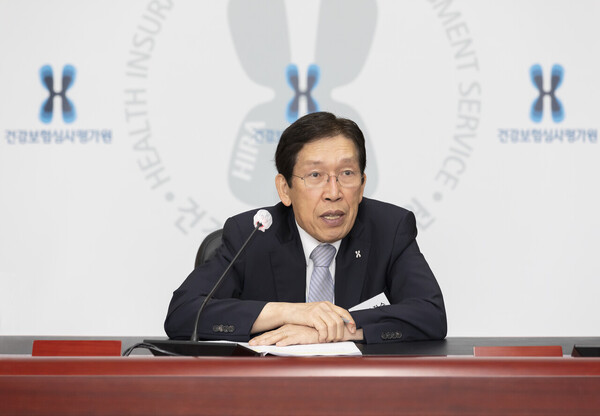
“Korea has become the capital of precocious puberty treatment,” the Health Insurance Review and Assessment Service (HIRA) said recently.
The agency added that it plans to strengthen reimbursement management for precocious puberty treatment, pointing out that the popular misconception of related drugs as growth enhancers has resulted in their excessive demands.
HIRA cited a study by Professors Park Mi-jeong and Kim Shin-hye of the Growth Clinic attached to the Department of Pediatrics at Inje University Sanggye Paik Hospital. They analyzed 133,283 children -- girls under nine and boys under 10 -- treated for sexual precocity from 2008 to 2020 using insurance claims data from HIRA.
Children treated for sexual precocity during the period were 6,906 boys and 126,377 girls. The number of treated for precocious puberty grew 83.3 times, from 1.2 per 100,000 in 2008 to 100 in 2020.
That of girls increased 15.9 times from 88.9 to 1,414.7.
HIRA attributed the sharp increase to a difference between the age of diagnosis for sexual precocity and when children can receive the treatment, “GnRH-releasing hormone agonists (GnRH-agonists),” with insurance coverage.
According to the Central Precocious Puberty (CPP) clinical treatment guideline, CPP is defined as the onset of secondary sexual characteristics before the age of eight (seven years and 365 days) for girls and nine (eight years and 365 days) for boys.
However, according to the Ministry of Health and Welfare’s notice, the upper limit age for starting GnRH-agonist injections is nine years (eight years and 365 days) for girls and 10 years (nine years and 365 days) for boys. The age limit for ending the treatment is 11 years (11 years and 364 days) for girls and 12 years (12 years and 364 days) for boys.
As a result, children are being diagnosed and treated at the upper limit age for GnRH-agonist injections, which means that they are being treated even though they do not meet the requirement for sexual precocity, HIRA noted. Secondary sexual characteristics that occur in girls at age eight and boys at age nine should be considered normal puberty, it added.
Moreover, some parents have perceived GnRH-agonist injections as "growth hormone injections," leading to unnecessary treatment even in cases where the condition is not present, leading to the increase in the treatment population for precocious puberty.

"In the case of girls, 76.0 percent were diagnosed at the age of eight, which exceeds the diagnostic age, and 82.6 percent of boys were diagnosed at the age of nine, also exceeding the diagnostic age," said Lee Jin-soo, chairperson of the committee for treatment review and assessment, at a meeting with journalists covering HIRA on Tuesday.
One in six girls aged eight and one in five girls aged nine were treated for the condition, meaning Korea has become the “capital of sexual precocity treatment.”
“A lot of these treatments are excessive care to generate revenue,” Lee said. We should try to normalize abnormalities for an appropriate level of treatment.”
To reduce over-diagnosis and unnecessary treatment, HIRA is strengthening its screening of GnRH-agonist injections by selecting them as a focused review item only for general hospitals.
It also has amended the reimbursement notice to specify the age of diagnosis for treating sexual precocity. The amendment was announced in May to begin implementation on June 1 but has been temporarily shelved due to opposition from parents.
HIRA says it is racking its brain on improving parental awareness of this problem.
"We need to expand PR activities (that GnRH-agonist injections do not have the effect of increasing height)," Lee said. “We will spread correct information in online cafes and other places to relieve parents of the burden, recognizing that it is not an injection that makes their children grow taller."

